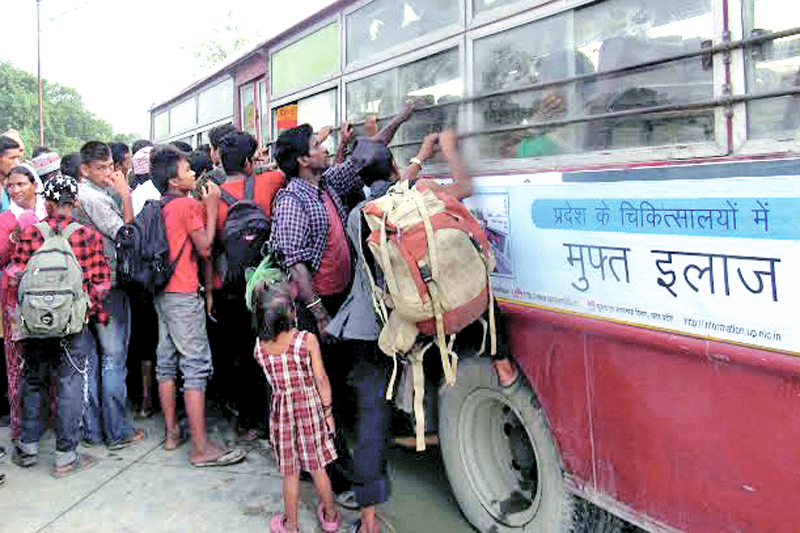Prolonged drought in Jajarkot triggers exodus
Nepalgunj, July 22
Prolonged drought in different parts of Jajarkot district has forced the locals to migrate to Indian cities in search of employment.
Birkha Bahadur Shahi of Garkhakot VDC–3, Jajarkot left for India via Nepalgunj–Rupaidiya border seeking employment. The prolonged drought in his village left Shahi with no option but to go to India seeking employment.
Shahi could not harvest his winter crops due to the prolonged drought last year, so he planted his monsoon crops this year and left for India’s Simle for employment.
“I failed to manage two square meals a day for my seven-member family, so I decided to move to the neighbouring country for a few months,” he said.
Tek Bahadur Singh of the same locality has accompanied Birkha Bahadur after planting his monsoon crops. As many as 23 men of the same village have left their hometown seeking temporary jobs in India.
“As all the young and working men have left the village in search of employment, only children, elderly and women are left in the village,” regretted Singh.
Similarly, Nanda Bahadur Bhandari, of Madena VDC, said, “I am heading to Sadar bazaar of India to work as a security guard. I must feed my family members and the drought has made it impossible for us to cultivate our lands,” said Bhandari.
“Male members of the family heading to India for jobs have become common in mid and far western regions. The trend has remarkably increased this year due to the prolonged drought,” said a local.
Residents of Humla, Mugu, Jumla, Kalikot, Jajarkot, Dailekh, Surkhet, Rukum, Rolpa, Salyan, Pyuthan, Bajura, Achham and Bajhang districts mostly go to India for employment.
“More than 1,000 people from the districts went to India along the Nepalgunj–Rupaidiya border on Thursday alone,” said Nepalgunj Police.
Food activist Suresh Adhikari said hundreds of Nepalis from the region were heading for India on a daily basis. “As a large chunk of the total population started suffering from famine due to the prolonged drought, they didn’t have any option but to leave for India,” said Dailekh journalist Yagya Raj Thapa.
More than 30 buses leave for various parts of India from Nepalgunj-Rupaidiya border every day.






